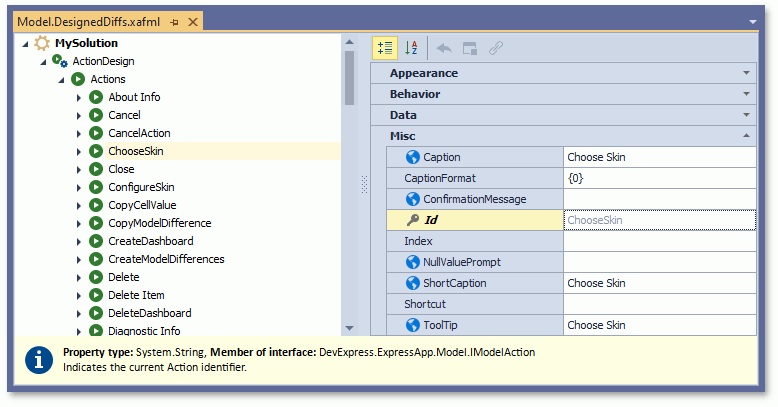IsGrantedExtensions.CanExecuteByRole(SecurityStrategy, IPermissionPolicyRole, String) Method
Checks whether the specified role allows executing the specified Action.
Namespace: DevExpress.ExpressApp.Security
Assembly: DevExpress.ExpressApp.Security.v24.1.dll
NuGet Package: DevExpress.ExpressApp.Security
Declaration
Parameters
| Name | Type | Description |
|---|---|---|
| security | SecurityStrategy | A SecurityStrategy object that specifies an application’s Security Strategy. |
| targetRole | IPermissionPolicyRole | An IPermissionPolicyRole object that is a role this method checks. |
| actionId | String | An identifier of an Action this method checks. |
Returns
| Type | Description |
|---|---|
| Boolean | true, if the specified role allows executing the specified Action; otherwise, false. |
Remarks
The following example shows how to use this method.
using DevExpress.ExpressApp;
using DevExpress.ExpressApp.Security;
using DevExpress.Persistent.Base;
using DevExpress.Persistent.BaseImpl.PermissionPolicy;
// ...
public class CheckActionPermissionController : ViewController<ListView> {
protected override void OnActivated() {
base.OnActivated();
SecurityStrategy securityStrategy = Application.GetSecurityStrategy();
foreach (IPermissionPolicyRole role in ObjectSpace.GetObjects<PermissionPolicyRole>()) {
if (securityStrategy.CanExecuteByRole(role, "CustomAction")) {
// ...
}
}
}
}
You can find an Action’s identifier in the Model Editor:

See Also